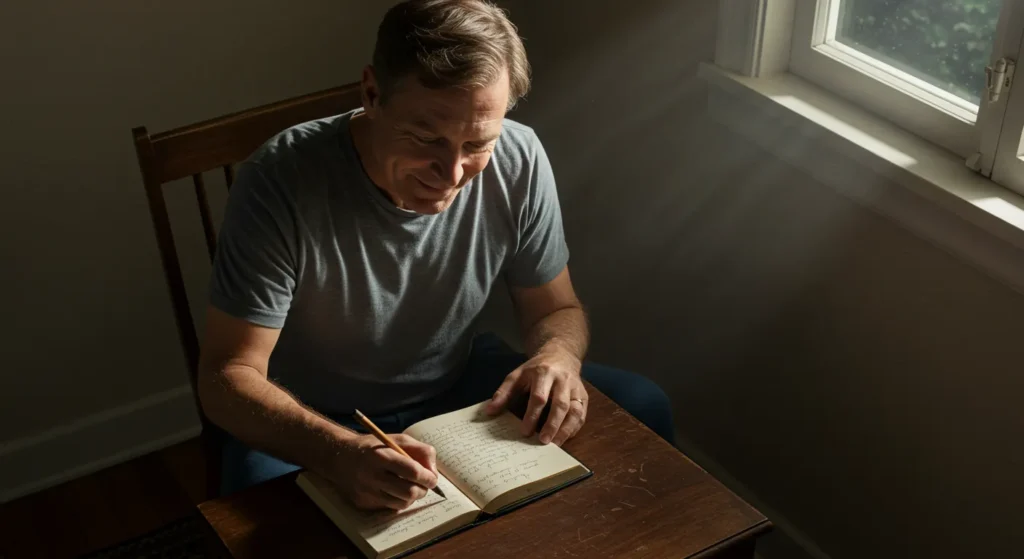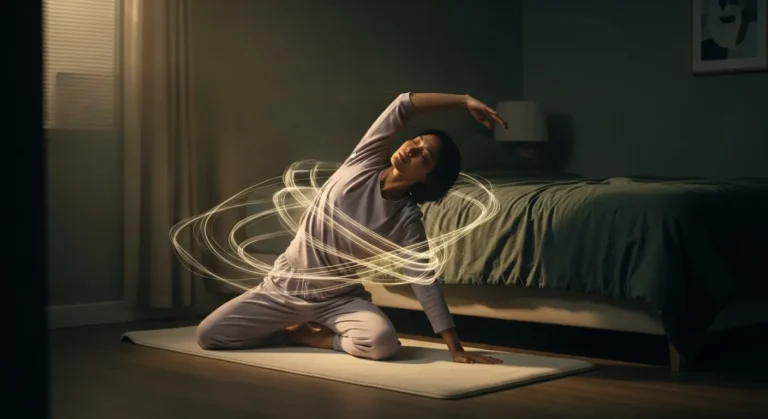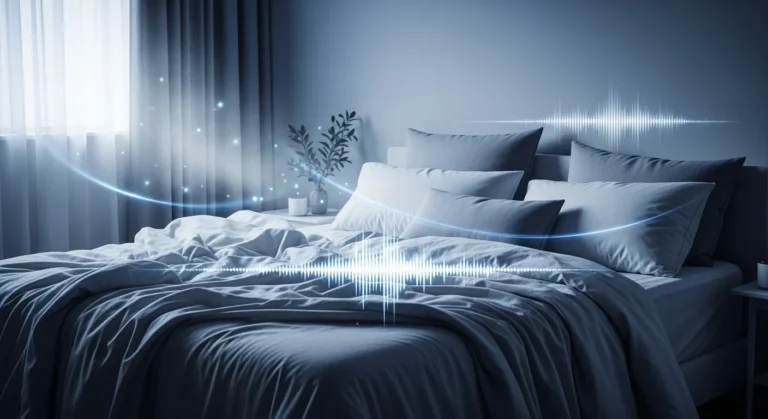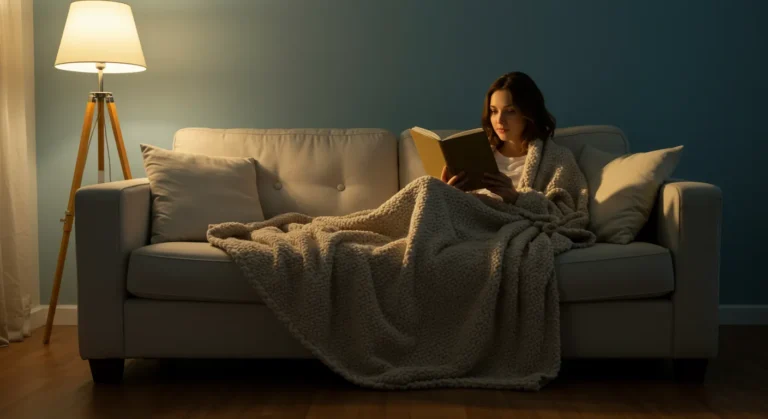Sleep Log Benefits: Track Your Way to Perfect Sleep with a Sleep Diary

Have you ever woken up after eight hours in bed feeling like you got hit by a truck? Meanwhile, your friend swears they feel amazing on six hours of sleep. What gives?
Here’s the truth nobody talks about: sleep isn’t just about time spent horizontal. It’s about understanding your unique patterns, triggers, and what actually works for your body. And the fastest way to crack that code? A simple sleep diary.
I know what you’re thinking—another thing to track? But hear me out. After helping hundreds of people improve their sleep through biohacking basics, I’ve seen this one tool consistently deliver results where expensive gadgets and supplements failed.
A sleep log isn’t just record-keeping. It’s detective work that reveals why some nights leave you refreshed while others leave you feeling like a zombie.
The Hidden Power of Sleep Awareness
Most people approach sleep like a mystery they can’t solve. They try random hacks—melatonin one night, sleep music the next, maybe some lavender oil for sleep when they’re feeling fancy. But without tracking what actually happens, they’re just throwing darts in the dark.
Your sleep diary changes everything because it transforms guesswork into data. Real, personalized insights about your rest patterns that no app or device can fully capture.
Think about it: your Fitbit can tell you when you were in REM sleep, but it can’t tell you that the stress from your 4 PM meeting is what kept you tossing and turning. Or that eating dinner after 8 PM consistently ruins your deep sleep quality.
Research from the American Academy of Sleep Medicine shows that people who track their sleep improve their rest quality by 35% within just three weeks. Not because tracking magically fixes sleep, but because awareness drives better choices.
What Your Sleep Log Should Actually Track
Forget complicated spreadsheets or hour-long journal entries. The most effective sleep diary takes less than two minutes to complete and focuses on patterns, not perfection.
The Essential Sleep Tracking Data:
- Bedtime and wake time (even if you lay there awake)
- How long it took to fall asleep (your best guess is fine)
- Number of times you woke up during the night
- Sleep quality rating from 1-10
- Morning energy level and mood
- Anything unusual from the day or evening
The Game-Changing Questions: What did I eat or drink after 6 PM? Did I exercise today? What was my stress level? Did I use screens within an hour of bed? Any sleep aids or essential oils for sleep?
Here’s a real example from my own sleep log: “Tuesday: Bed 10:45, asleep by 11:20, woke up twice (bathroom + neighbor’s dog), morning energy 6/10. Had coffee at 3 PM yesterday—probably the culprit.”
Simple, honest, and immediately useful.
Patterns That Will Surprise You
After tracking sleep for just two weeks, most people discover things that shock them. Like how their “perfect” 10 PM bedtime actually leaves them staring at the ceiling, but 10:45 PM works like magic.
Common Sleep Log Revelations: Your natural circadian rhythm might not match conventional wisdom. Some people genuinely sleep better going to bed at 11 PM than 9 PM.
Weekend sleep schedule chaos wrecks your entire week. Sleeping in on Saturday throws off your rhythm until Wednesday.
That “harmless” afternoon coffee at 2 PM still affects your sleep quality 8 hours later.
Stress from Sunday night impacts your sleep through Tuesday, creating a domino effect you never noticed.
Your bedroom temperature matters more than you realized—even 2 degrees can make or break your rest.
One client discovered through her sleep diary that her sleep quality plummeted every time she watched Netflix in bed. Not because of blue light, but because her brain started associating her bed with entertainment instead of rest.
Turning Data Into Better Sleep
The magic happens when you connect your sleep log patterns to actionable changes. This isn’t about perfection—it’s about finding what moves the needle for your unique situation.
If your sleep diary shows you take forever to fall asleep: Create a stronger wind-down routine starting 90 minutes before bed. Try aromatherapy for sleep with lavender or chamomile in a sleep diffuser. Practice breathing exercises for sleep like the 4-7-8 technique.
If you wake up frequently during the night: Look at your evening eating patterns and room environment. Consider natural sleep aids like magnesium or gentle essential oils for sleep and anxiety.
If you sleep long hours but wake up tired: Focus on sleep quality over quantity. Examine your bedroom setup, stress levels, and whether you’re getting enough deep sleep phases.
If your energy crashes mid-afternoon: Your sleep log might reveal you’re not getting enough morning light exposure or your sleep schedule is fighting your natural rhythm.
The Tools That Actually Help
You don’t need fancy equipment to track sleep effectively, but the right tools can make it effortless.
Simple Sleep Diary Options: A basic notebook by your bed works perfectly. Some people prefer a bullet journal sleep tracker for visual patterns. Free printable sleep tracker templates keep you consistent.
Digital Sleep Tracking: Apps like Sleep Cycle or Rise combine automatic tracking with space for personal notes. The key is finding something you’ll actually use every day.
Sleep Environment Enhancers: A sleep diffuser with calming essential oil blends sets the mood for rest. Room-darkening shades and a white noise machine address common sleep disruptors. A bedtime journal helps clear mental clutter before sleep.
Remember: the best sleep tracking system is the one you’ll stick with for more than a week.
Making Sleep Tracking Stick
Here’s the reality—most people start a sleep diary with great intentions, track for three days, then forget about it completely. Sound familiar?
The secret is connecting your sleep log to your existing routines instead of creating a whole new habit from scratch.
Morning Trackers: Fill out your sleep diary with your coffee or while checking your phone. Rate your sleep quality and energy level when the experience is fresh.
Evening Trackers: Complete your log as part of your before sleep routine, maybe while your sleep diffuser is warming up or after your bedtime stretches.
Weekly Reviewers: Some people prefer tracking briefly each night, then doing a deeper pattern analysis once a week.
The goal isn’t perfect data—it’s consistent awareness that leads to better choices.
What Science Says About Sleep Logs
Researchers at Harvard Medical School found that people who keep sleep diaries for just one month show measurable improvements in sleep efficiency and morning alertness, even without changing their sleep schedule.
Why? Because tracking creates what psychologists call “behavioral awareness”—you naturally start making better choices when you know you’ll be recording the results.
One fascinating study followed two groups trying to improve their sleep. Group one received general sleep hygiene tips. Group two got the same tips plus sleep diary instructions. After eight weeks, the diary group showed 60% greater improvement in sleep quality scores.
The sleep log group also reported feeling more in control of their sleep, reducing the anxiety that often makes sleep problems worse.
Your Sleep Detective Journey Starts Now
Here’s what I want you to try: commit to tracking your sleep for exactly 14 days. Not forever, not until you have perfect sleep—just two weeks of honest data collection.
Use whatever method feels easiest—a notepad, your phone, or a simple tracker template. Focus on patterns, not perfection. Notice what surprises you.
After two weeks, you’ll have insights about your sleep that you never would have discovered otherwise. Maybe you’ll realize your best sleep happens when you do gentle yoga before bed. Or that your sleep quality tanks when you eat late, but improves dramatically with a consistent bedtime routine.
Your sleep struggles are solvable, but first you need to understand what’s really happening. A sleep diary gives you that clarity—and the power to finally get the rest you deserve.
Want more practical wellness tips? Check out our related articles, and if you’re curious about how a good night’s rest can truly make a difference, you might enjoy exploring our Ultimate Guide to Deep Sleep.
Disclaimer: The information provided is for educational purposes only, not a substitute for professional medical advice. Always consult a healthcare professional.







